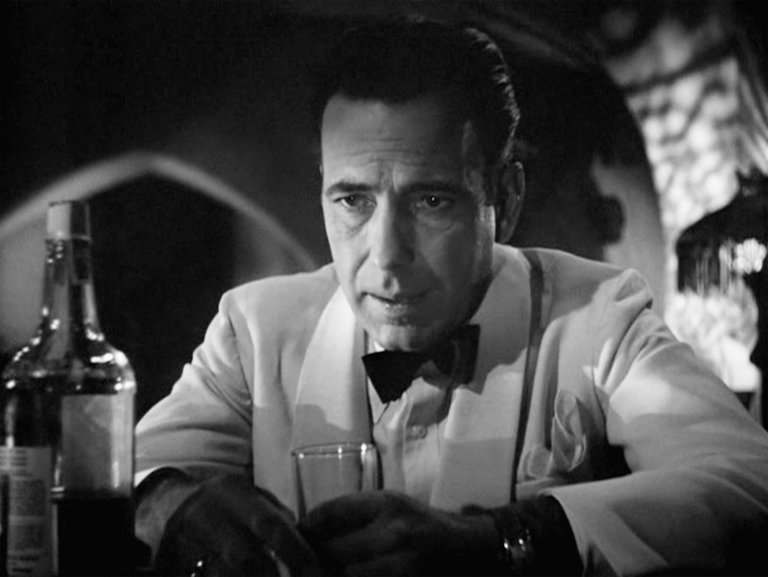Where are you from?
This question bothers me. But what bothered me even more was a comment from a well-intentioned boss who, commented on my physical appearance and skin color with the words:
“You don’t look Colombian.”
I didn’t like his comment, not because it was prejudiced and ignorant; I didn’t like it because he was right.
The best answer I've heard to the same question was said by Rick Blaine (Humphrey Bogart) in the movie Casablanca:
Major Strasser: What is your nationality?
Rick: I'm a drunkard.
Captain Renault: That makes Rick a citizen of the world.
[all laugh]

I'm not a drunkard but I would love to say it when someone asks me. I get annoyed every time I try to give an answer. I choose to say that I am a citizen of the world, but I do not really believe that could be possible, not in the world we are living today. But at least, for a minute, saying that I am a citizen of the world, will make me feel like Rick Blaine.
I know where I come from, as well as the limitations and advantages resulting from this. However, that does not mean I have clarity about my identity or feel the mission to defend it when I say I am Colombian. I do not want to apologies for not having a clear national identity. Of course, national identity is important, but the certainty about national identity for me feels suspicious.
A psychoanalyst could make a theory about my condition. I offer myself as an object of study. Let's start with some insights: I was born in Colombia, a country with a unfinished national project, according to some experts. I studied anthropology, which leaves a problem rather than a response to the question, Who am I? Television was my nanny, I suckled the milk of movies, I jerked my brains with social media and internet, and I have a conflictual relationship with authority; especially with the authors of self-help books. I live in Catalonia and have a Spanish passport, my wife was born in Finland, and my children were born and are growing up in a town near Barcelona. Being and knowing who I am in my everyday life does not always have a direct relationship.
Of course all is not lost regarding my identity. Given my lack of certainty I spend time researching who I am. My research is not a doctoral thesis; it is the result of this melting pot where I belong here and now. My confusion does not make me jump out of a window. I never have been interested in belonging to a single tribe. I belong and have belonged to many. Some have expelled me, and others I forget that I am still a member. In the end, I found a formula: I do not tolerate and respect diversity; I celebrate diversity every day of my life. I do not understand my identity in reference to nationalism, because it forces me to anchor myself to a history lived by others, or a past that no longer belongs to me.
In my home we have to negotiate every day who we are in the middle of three languages and four different cultures, and you have to sum to the equation what the school, TV, social media and books says. The nationalist argument is weak to decide who is responsible for cleaning the toilet. If you think about it for a moment, the decision to clean the toilet, says more about who you are than the color of a flag or the anthem of a political party.
Knowing where you are from might be important but for me it is more important to try to be authentic, being aware that my values and culture depend on the context which I decide to be part of. It is more about where I choose to live and what the kind of people who I decide to interact with.
What I’m doing
CEO in InfoElder.com
Aging2.0 Barcelona Ambassador
Enthusiastic about using technology to improve the live of people
Rural land register for the peace in Colombia
Universal clinical records
Robo advisors for retirement plans
wellcome